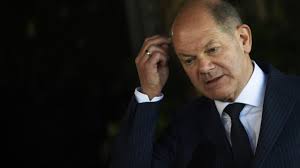
ANTALYA (Turkey), March10 (NNN-AGENCIES) — The foreign ministers of Russia and Ukraine met for face-to-face talks in Turkey on Thursday in the first high-level contact between the two sides since Moscow invaded its ex-Soviet neighbour last month.
Ukraine’s foreign minister says he discussed a 24-hour ceasefire with his Russian counterpart but no progress was made.
“We also talked on the ceasefire but no progress was accomplished on that,” Dmytro Kuleba told reporters after his meeting with Russian Foreign Minister Sergey Lavrov.
“It seems that there are other decision-makers for this matter in Russia,” Kuleba added, in apparent reference to the Kremlin.
He described the meeting as “difficult” and accused Lavrov of bringing “traditional narratives” to the table.
“I want to repeat that Ukraine has not surrendered, does not surrender, and will not surrender,” said Kuleba.
Lavrov, meanwhile, said Russia wants to continue negotiations with Ukraine. He added Western nations were behaving dangerously over Ukraine, and Russia’s “special military operation” there was going according to plan.
“We will come out of this crisis with refreshed views of the world – with no illusions about the West. We will try to never again be dependent on the West,” he said. “Until the end, we wanted to resolve the situation in Ukraine through diplomatic means.”
Officials from Kyiv and Moscow have held several rounds of discussions, but the meeting in the southern city of Antalya marked the first time Russia sent a minister for discussions on the crisis.
The meeting between Lavrov and Kuleba took place on the sidelines of a diplomacy forum near Antalya on Thursday. Turkish Foreign Minister Mevlut Cavusoglu also participated.
Cavusoglu has said the aim of the meeting is to pave the way for a meeting between the Russian and Ukrainian presidents, which would be facilitated by Turkey’s president.
Kuleba said earlier his team will be “pressing for the maximum”.
“I will demand a ceasefire to liberate our territories, and of course to resolve the humanitarian issues, or rather catastrophes created by the Russian military,” he said.
“Owing to the actions of the Ukrainian armed forces, as well as the coordinated actions with partners regarding sanctions, I am going to these negotiations in a strong position.”
Moscow has said it is ready for talks with Ukraine, but all of its demands – including that Kyiv takes a neutral position and drops aspirations of joining the NATO alliance – must be met to end its assault.
It was the first trip abroad for Lavrov since Russia was isolated by the Western world with biting sanctions that have also targeted President Vladimir Putin’s long-serving top diplomat.
Delegations from the two countries have held three rounds of talks previously, two in Belarus and one in Ukraine. Despite some positive signs on humanitarian arrangements, those negotiations have had little effect.
The latest sit-down comes as Turkish President Recep Tayyip Erdogan has pushed for Ankara to play a mediation role.
“We are working to stop this crisis from transforming into a tragedy,” Erdogan said on Wednesday. “I hope the meeting between the ministers will open the way to a permanent ceasefire.”
NATO member Turkey is keen to maintain strong relations with both sides despite the conflict.
Turkey shares a maritime border with Russia and Ukraine in the Black Sea and has good ties with both. Ankara has called Russia’s invasion unacceptable and appealed for an urgent ceasefire, but has opposed sanctions on Moscow.
While forging close ties with Russia on energy, defence and trade, and relying heavily on Russian tourists, Turkey has also sold drones to Ukraine, angering Moscow. It also opposes Russian policies in Syria and Libya, as well as its 2014 annexation of Crimea.
Moscow calls its incursion a “special military operation” to disarm Ukraine and dislodge leaders it calls “neo-Nazis”. Kyiv and its Western allies dismiss that as baseless pretext for an unprovoked war against a democratic country of 44 million people.
Russia’s invasion has uprooted more than two million people in what the United Nations calls the fastest humanitarian crisis in Europe since World War II. — NNN-AGENCIES



